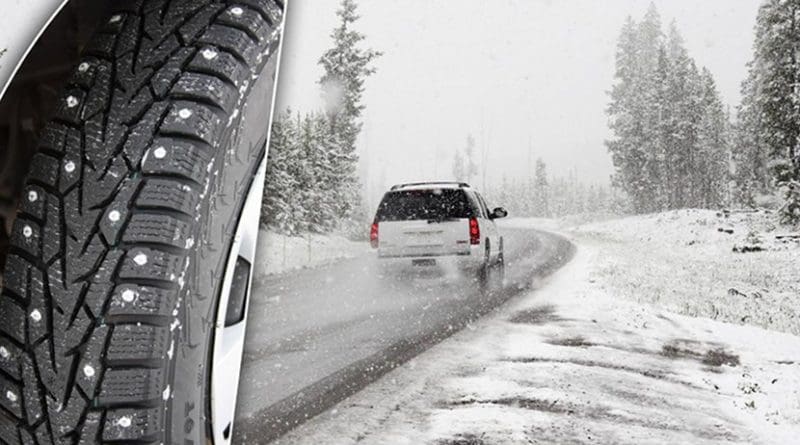Studded Winter Tires Cost More Lives Than They Save
Researchers from Chalmers University of Technology, Sweden, have now shown that studded winter tyres cost more lives than they save. The new study takes a holistic view of the tyres’ impact on wider public health. At the same time, they show that their use contributes to the bloody conflict in the Democratic Republic of Congo, and fatal accidents in their production phase.
This is the time of year in Sweden when many people start to change their normal car tyres to winter ones. According to Trafikverket, the Swedish Transport Administration, around 60% of Swedish drivers choose studded winter tyres, and there has long been a debate about the emissions caused by the studs damaging the ground and throwing up particles into the atmosphere.
Three Chalmers researchers have now investigated this question. Anna Furberg, Sverker Molander and Rickard Arvisson at the Division of Environmental Systems Analysis used a systemic perspective to analyse studded winter tyres’ public health impact for their whole life cycle.
To weigh up the advantages and disadvantages, the researchers looked at how many lives are saved through their use, compared to the level of emissions they generate through wear of the roads and in their production. Additionally, they investigated accident statistics from the small-scale mining industry in the DRC, where cobalt – an important element for the studs – is most abundant. Cobalt is a highly sought-after conflict metal which contributes to the warfare in the region, something the researchers also accounted for.
The researchers estimate that from a broader life cycle perspective of studded tyres’ life-spans, Swedish use of studded tyres saves between 60 and 770 life-years, compared with 570 to 2200 life-years which are lost.
“Taking everything together, the picture is very clear – studded winter tyres actually cost more lives than they save,” says Sverker Molander, a professor at the Department of Technology Management and Economics at Chalmers.
The biggest negative impact is generated during usage, from the emissions caused by road damage. Even taking only this into account, the negative health impacts already clearly outweigh the advantages. Once you measure the other factors in as well, the result only becomes clearer, the researchers explain.
“The small-scale mining, where many accidents and fatalities occur, is the next biggest part of the tyres’ overall negative health impact. Deaths linked to the conflict in the DRC are the smallest part, but that being said, there are many aspects of that that have not been included in the study – the conflict of course influences the whole of society. I doubt many people realise that using these tyres is contributing to the situation in the DRC,” says Anna Furberg.
The advantages of the studded winter tyres are mainly enjoyed in Scandinavia, whilst nearly a third of the negative health impacts are felt elsewhere.
“This is a clear illustration of what globalised production can result in. People profiting at others’ expense. It is not those who benefit from the product who are having to pay for the negative effects,” says Sverker Molander.
So how should consumers react to this research? Anna Furberg and Sverker Molander suggest that good winter tyres without studs can be an alternative, in combination with careful driving and consideration of alternative means of travel.
“Of course, how you drive is important, and snow-ploughing and sweeping needs to be done properly. Most cars today also have electronic anti-skid systems fitted, which make them safer to drive at higher speeds. But our study shows that there is more research needed concerning alternatives to studded winter tyres that don’t cause these health issues,” says Anna Furberg.
The article “Live and let die? Life cycle human health impacts from the use of tire studs” was recently published in the scientific journal International Journal of Environmental Research and Public Health.

